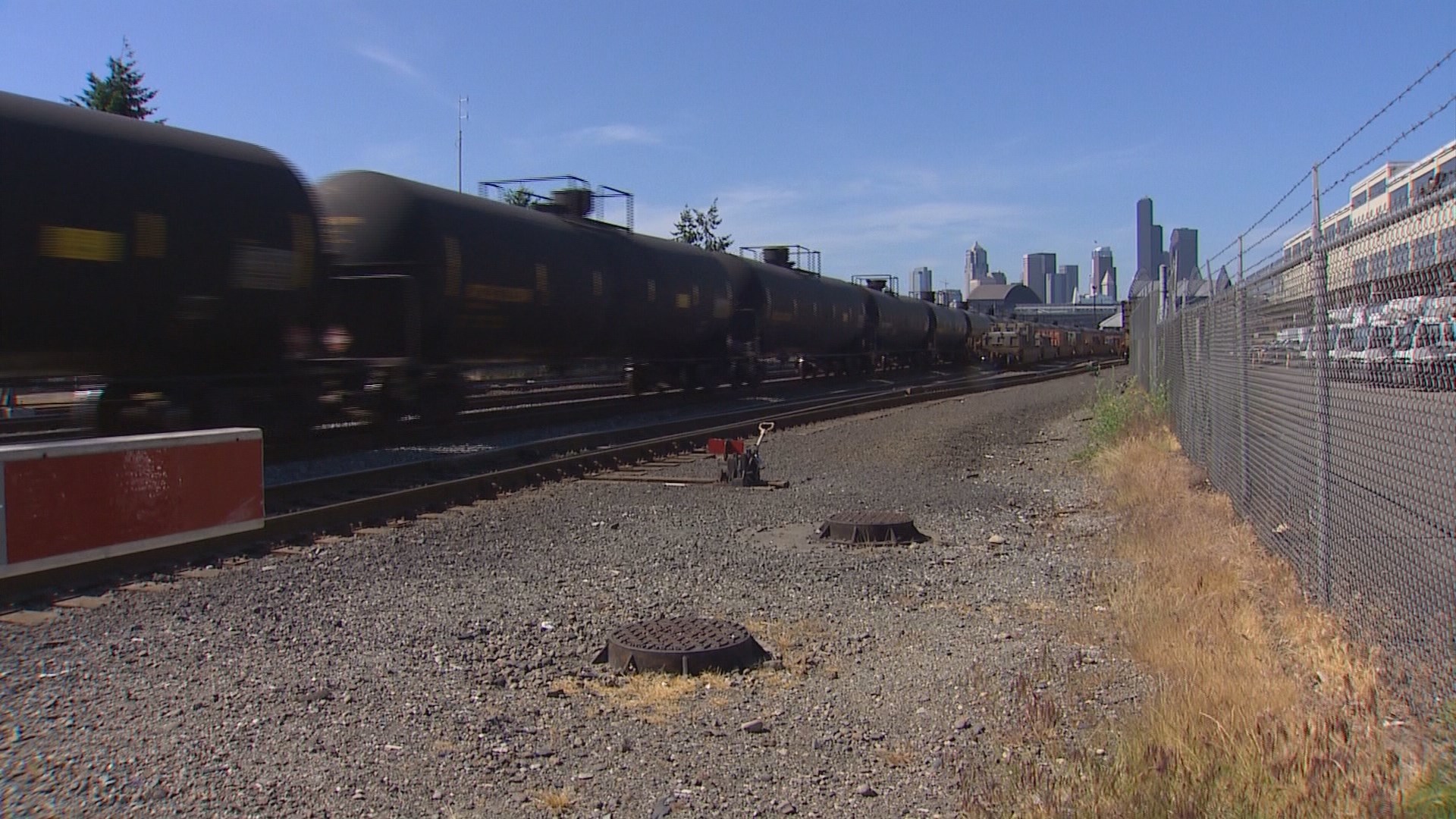An oil train derailment in Oregon last year was blamed on broken bolts. It's the same kind of safety defect documented nearly 24,000 times in a recent Federal Railroad Administration report.
There were also 1,118 violations, which are considered more serious.
"What stood out to me about this report was it confirmed our fears," said Rebecca Ponzio, Washington Environmental Council oil campaign director. "We've been lucky here in Washington that we haven't had a major derailment, but this report identified thousands of violations that were the exact same kind of thing that created derailments across the nation. That's scary."
The Washington Environmental Council is a group admittedly opposed to oil train expansion, but they're also fighting for tighter regulations of oil trains statewide.
"Bolts were unscrewed, parts of the rail line were unhinged. Fasteners were not there; they were missing. That's created problems across the nation, and that's what I'm concerned about," Ponzio said.
Union Pacific, the company responsible for the Oregon derailment, said "Union Pacific has always paid close attention to track conditions and inspections."
It's main competitor, BNSF, also reports spending billions on improvements each year.
"In 2016, our capital expenditures in Washington were approximately $200 million. And in 2017, the planned expenditure in the state is $175 million. In 2017, our maintenance expenditures in the state will go toward replacing nearly 150,000 railroad ties and 920 miles of ballast," said BNSF spokesman Michael Trevino.
The FRA says many of the problems they found can be fixed, and cites a 10 percent decrease in track-caused derailments in the last couple years.
But as accidents continue, activists believe the derailments are still far too common.
"I think the oil industry has a lot of work to do to make sure that their products are being transported safely," Ponzio said. "Our communities are on the front line, and we're concerned."


